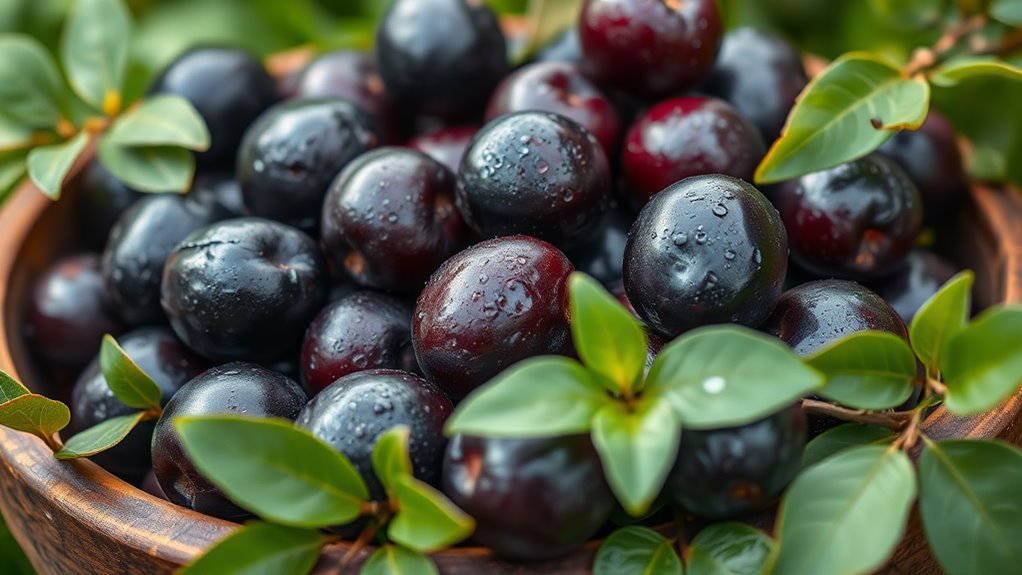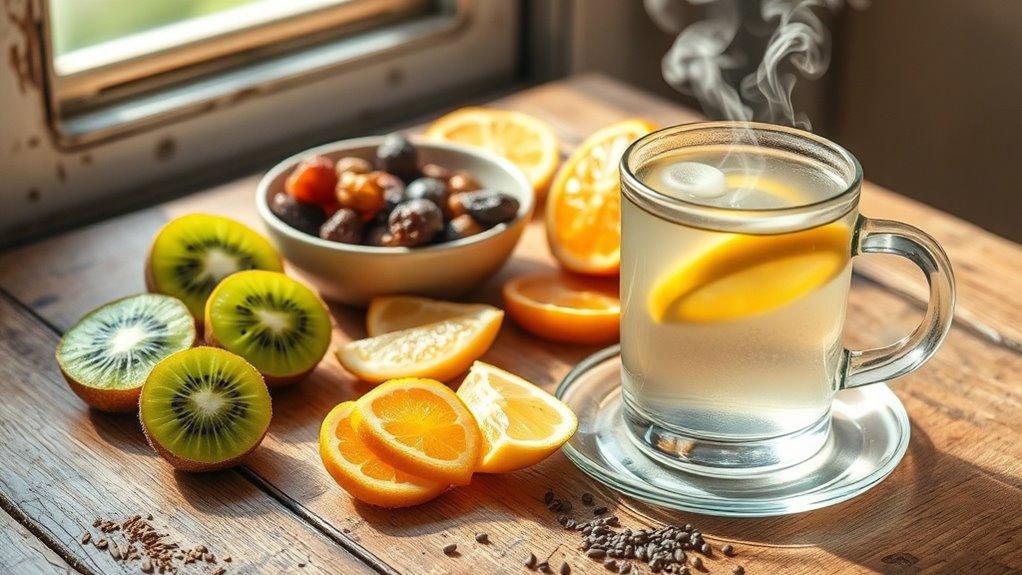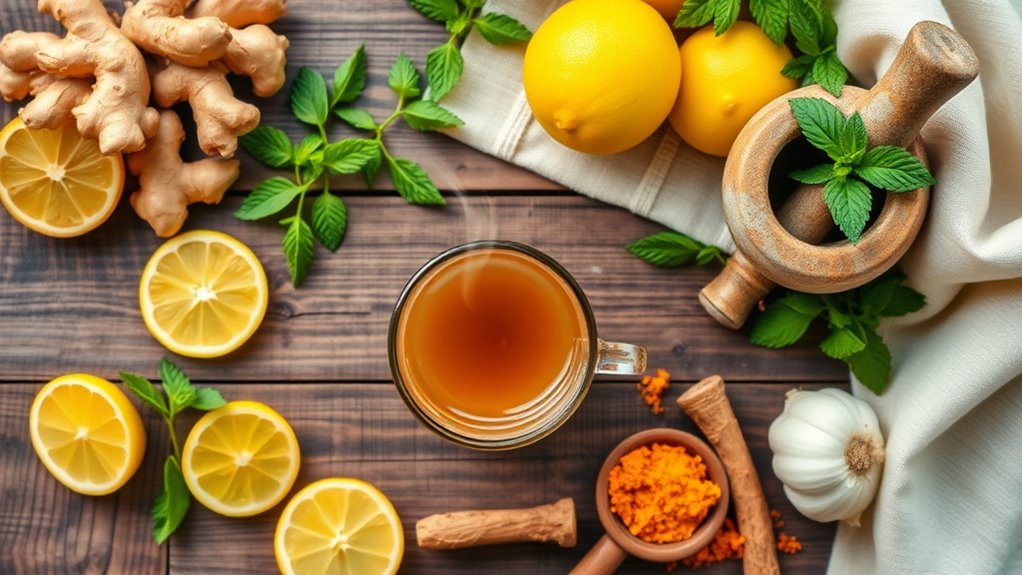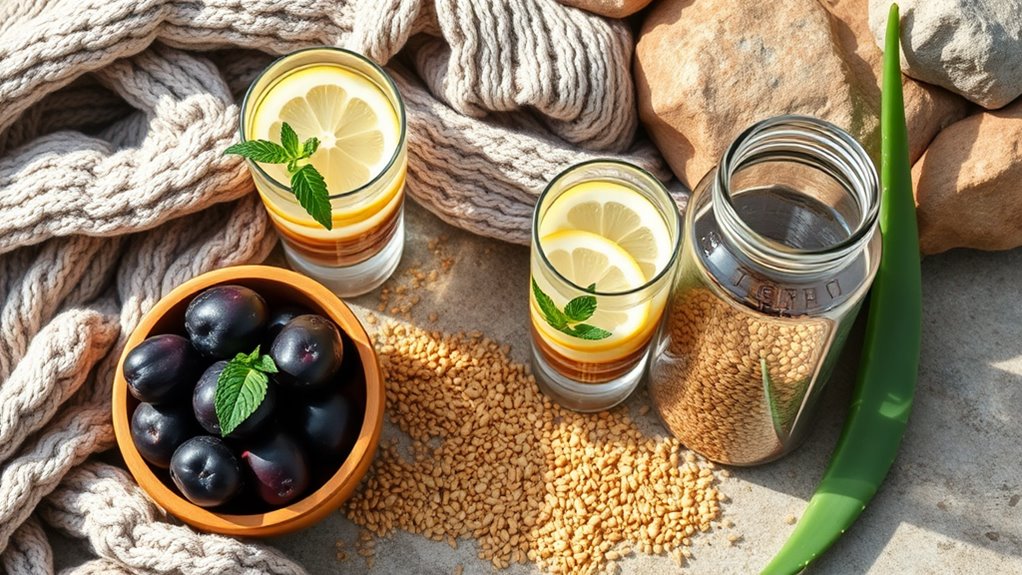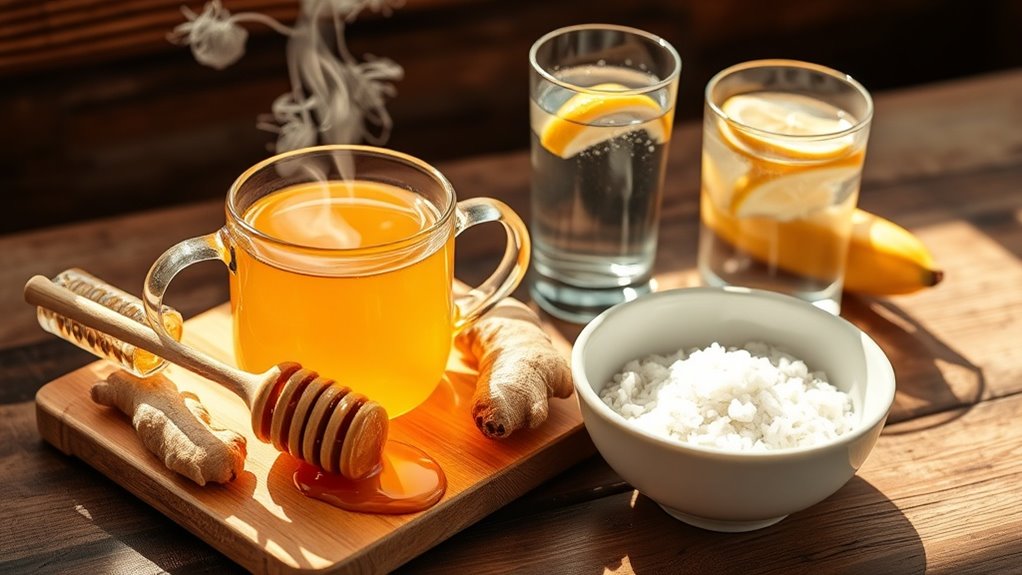This Natural Fix for Constipation Might Surprise You
If you’re struggling with constipation, consider adding high-fiber foods to your diet, like prunes, lentils, and kiwifruit. These can soften stools and promote regularity. Staying hydrated is crucial too; aim for at least 8 cups of water daily. Regular physical activity also boosts digestion. Lastly, herbal remedies like psyllium and aloe vera might surprise you with their effectiveness. Discovering more about these natural approaches can help you tackle constipation more effectively.
Understanding Constipation: Causes and Symptoms
Understanding Constipation: Causes and Symptoms
What causes constipation, and how can you identify its symptoms?
Common causes include lack of physical activity, certain medications, and hormonal changes. Additionally, a low-fiber diet can significantly contribute to slower digestion and constipation.
You might notice symptoms like having fewer than three bowel movements a week, hard stools, and difficulty passing them.
Straining and feelings of incomplete evacuation are also signs.
Abdominal pain and bloating often accompany these issues.
To manage constipation, you can explore various constipation remedies such as increasing your water intake, incorporating fiber-rich foods, or engaging in regular exercise. Addressing these symptoms early can help prevent long-term complications and improve your overall digestive health. Furthermore, it is important to recognize that constipation can occur across all age groups, highlighting the necessity for awareness and proactive management.
The Role of Diet in Digestive Health
Sure! Here’s the revised content as per your directions:
Diet plays a crucial role in maintaining digestive health and can significantly impact how your body processes food. Essential nutrients like fiber, hydration, and macronutrients support digestion. Here’s a quick overview:
| Nutrient | Importance | Example Foods |
|---|---|---|
| Fiber | Prevents constipation | Beans, whole grains |
| Hydration | Aids nutrient absorption | Water, fruits |
| Balanced Diet | Supports digestive function | Lean meats, veggies |
| Probiotics | Enhances gut health | Yogurt, fermented foods |
| Vitamins/Minerals | Assist in enzyme function | Leafy greens, nuts |
A proper diet not only prevents problems but also promotes overall well-being. Additionally, maintaining adequate hydration is essential for avoiding dehydration that can lead to constipation.
Let me know if there’s anything else you need!
High-Fiber Foods That Work Wonders
Incorporating high-fiber foods into your meals can make a significant difference in relieving constipation and improving overall digestive health. Consider adding navy beans, which contain about 19.1 g of fiber per cooked cup, and lentils, offering 7.8 g per half-cup. Prunes and apples also help, thanks to their soluble fiber and moisture. Fiber is a powerful natural solution for constipation relief, and including vegetables like broccoli and Brussels sprouts for added bulk is essential. Don’t forget chia seeds; they absorb water and promote softer stools. Whole grains like wheat bran and high-fiber cereals can speed up transit, ensuring you stay regular. Fiber is essential for digestive health, and these foods work wonders in keeping your digestive system healthy.
Staying Hydrated: The Key to Regularity
Staying hydrated is crucial for maintaining regularity. Dehydration makes stools dry and hard, which complicates passing them. By increasing your fluid intake, especially if you typically drink less, you can soften your stools and support smoother bowel movements. Inadequate hydration slows stool movement and causes excessive water reabsorption, worsening constipation. This is particularly important as you age. Additionally, magnesium-rich foods can help further stimulate bowel movements when combined with adequate hydration. Dehydration leads to hard stools as the large intestine absorbs excess water, making it vital to drink enough fluids throughout the day. Aim for adequate fluid consumption daily, and remember that while hydration is essential, it mightn’t be the only solution for severe constipation cases. Stay aware and drink up!
The Impact of Physical Activity on Gut Function
Physical activity plays a crucial role in promoting gut function, and its benefits extend beyond just physical fitness.
Regular exercise enhances blood flow to your digestive tract, improves muscle coordination, and stimulates muscular contractions, making waste removal more efficient. Additionally, research shows that exercise impacts gut microbiome composition, indicating that higher intensity workouts can foster the growth of beneficial bacteria. Engaging in moderate to high-intensity exercise for 30 to 90 minutes, three times a week, can alter your gut microbiota positively by increasing beneficial bacteria and reducing inflammation. These changes improve gut health across various populations, helping you maintain balance in your gut bacteria, which is vital for preventing future digestive issues.
Probiotics: Nature’s Solution for Constipation
If you’re struggling with constipation, probiotics might just be nature’s answer.
Research shows that specific strains, like Bifidobacterium lactis and Lactobacillus casei Shirota, can enhance bowel movement frequency and improve stool consistency.
Probiotic Benefits Explained
Probiotics can be a game-changer when it comes to easing constipation and improving gut health.
They work by interacting with your intestinal barrier and promoting a balanced gut microbiota.
Here are some key benefits:
- Increases frequency and softness of bowel movements
- Enhances gut motility for smoother stool passage
- Produces short-chain fatty acids that support intestinal health
- Safe and effective addition to your diet
- May relieve constipation related to conditions like IBS and pregnancy
Incorporating probiotics into your routine can lead to significant improvements in your digestive health and overall well-being.
Effective Strains Identified
Understanding which probiotic strains effectively alleviate constipation can enhance your digestive health significantly.
For instance, Bifidobacterium lactis has been shown to increase defecation frequency, while Lactobacillus casei Shirota is recognized for its positive effects on bowel movements.
If you’re dealing with IBS, Bacillus coagulans may help specifically with related constipation.
Additionally, combinations like L. acidophilus, B. bifidum, and L. rhamnosus have gained attention for their potential relief.
Clinical studies support these strains’ effectiveness, suggesting that incorporating them into your routine could improve gut motility and overall constipation management.
Always consult a healthcare provider before trying new probiotics.
Herbal Remedies: Traditional Approaches to Relief
Looking for natural ways to tackle constipation?
Herbal remedies can provide relief, but it’s essential to use them wisely.
Consider these options:
- Cascara Sagrada: A stimulant laxative that encourages colon contractions, effective for short-term relief.
- Senna: Stimulates intestinal movement; use sparingly to avoid dependency.
- Psyllium: A bulk-forming laxative that helps create softer stools with adequate water intake.
- Mint and Chamomile: Soothe digestive discomfort and support relaxation, not direct laxatives.
- Rhubarb and Aloe Vera: Stimulate bowel movements cautiously; risks exist with prolonged use.
Incorporating anti-inflammatory foods into your diet can further support digestive health and help maintain regularity.
Always consult a healthcare provider before starting any herbal treatment.
The Power of Kiwifruit for Bowel Health
If you’re looking for a natural way to support your bowel health, kiwifruit might be your answer.
Packed with dietary fiber and the enzyme actinidin, it aids digestion and helps promote regular bowel movements.
For best results, try incorporating two kiwifruits into your daily routine to experience its full benefits.
Fiber Content Benefits
Kiwifruit stands out as a powerhouse for digestive health, particularly due to its impressive fiber content.
Incorporating kiwis into your daily diet can significantly enhance bowel function by providing both soluble and insoluble fiber.
- Soluble fiber aids digestion and regulates blood sugar.
- Insoluble fiber adds bulk, improving stool consistency.
- Two kiwis offer about 4.14 grams of fiber, addressing daily intake needs.
- Kiwifruit’s fiber retains more water compared to apples and wheat bran.
- Regular consumption can enhance stool frequency, promoting a healthier gut.
With kiwis, you’re not just enjoying a delicious fruit; you’re investing in your digestive well-being.
Digestive Health Support
How can a single fruit revolutionize your digestive health? Kiwifruit is a powerhouse for your gut, promoting regularity and easing constipation. It improves stool consistency and reduces gastrointestinal transit time. Packed with the proteolytic enzyme actinidin, it aids protein digestion and enhances nutrient absorption. Plus, its fiber supports healthy gut bacteria, fostering a balanced microbiome.
| Benefit | Kiwifruit Impact |
|---|---|
| Stool Consistency | Improves regularity |
| Transit Time | Decreases digestive delay |
| Gut Health | Supports microbial balance |
Adding kiwis to your diet can transform your digestive wellness.
Consumption Recommendations
Wondering how to effectively incorporate kiwifruit into your daily routine for better bowel health?
Aim for two kiwifruits per day—choose either green (Actinidia deliciosa) or gold (Actinidia chinensis).
Studies suggest benefits appear in about 28 days.
- Kiwifruits’ fiber enhances bowel movements.
- The actinidin enzyme aids digestion.
- Gold kiwifruits provide higher vitamin C levels.
- They’re comparable to psyllium in effectiveness.
- Easy to integrate into your diet for sustained health benefits.
Making kiwifruit a daily staple not only promotes regularity but also contributes essential nutrients for your overall well-being.
Practical Tips for Incorporating Natural Remedies
Are you looking for effective ways to seamlessly incorporate natural remedies into your daily routine for constipation relief?
Start by drinking carbonated water or lemon water each morning to boost hydration.
Gradually add fiber-rich foods like fruits, vegetables, and whole grains to your diet while ensuring you drink plenty of water.
Consider taking a teaspoon of olive oil or aloe vera juice on an empty stomach for extra lubrication.
Incorporate daily movement to stimulate your digestive tract, and be consistent with your bathroom routine to maintain regularity.
These simple adjustments can significantly improve your bowel health. Additionally, drinking ginger-lemon tea may support digestion and help reduce bloating.
Long-Term Strategies for Managing Constipation
Managing constipation effectively requires a long-term approach that combines dietary adjustments, hydration strategies, regular exercise, and consistent bowel habits.
To establish a sustainable routine, consider these strategies:
- Increase fiber intake gradually to 25-34 grams daily from fruits, vegetables, and whole grains.
- Stay hydrated by drinking at least 8 cups of water daily, avoiding diuretics.
- Incorporate moderate physical activity into your daily routine.
- Schedule consistent bowel movements, responding promptly to your body’s signals.
- Use supplements like fiber or magnesium under medical supervision for added support.
- Additionally, practicing mindful eating can enhance digestion and reduce discomfort.
Implement these strategies to promote regularity and improve your overall digestive health.

